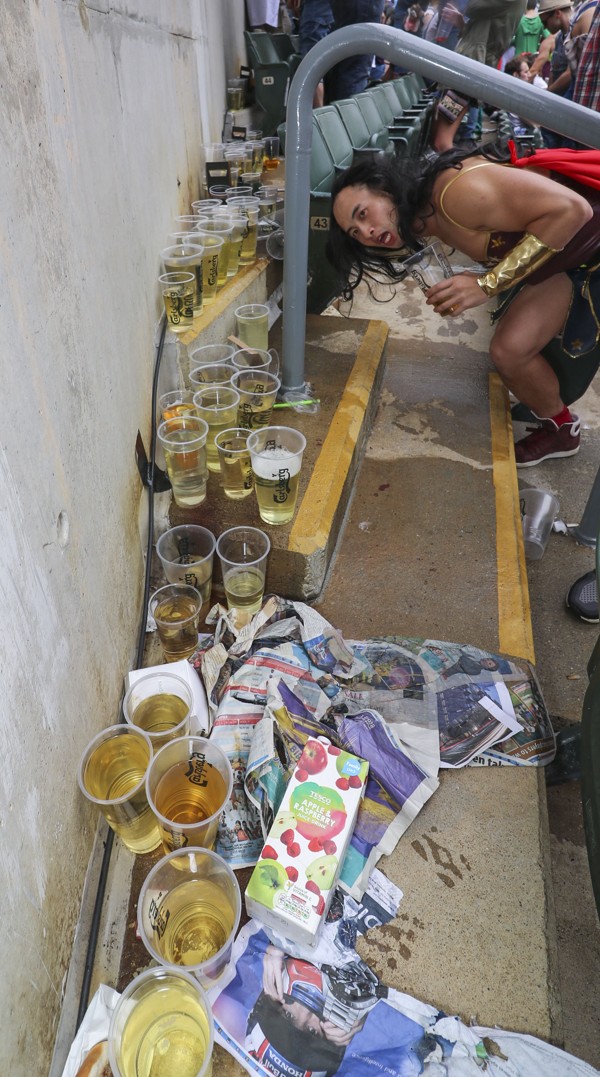
Green Hong Kong Sevens is tackling waste but could kick it into touch with ‘beercycling’
Organisers are delighted with progress so far in fifth year of initiative aimed at tackling waste, but are they missing a trick?
The organisers are aware of the tournament’s impact on the environment and this year’s Sevens is the fifth in a row as part of their Green Sevens campaign, a mission to make the event more eco-friendly.
“Tackling Waste!” is how they have billed an initiative that involves the government’s Environment Bureau, Environmental Protection Department and Leisure and Cultural Services Department, co-title sponsors HSBC and Cathay Pacific and Carlsberg, Swire, Coca Cola and Holiday Inn Golden Mile.
The Hong Kong Rugby website says the organisers are “delighted with the progress so far”.
An incentive to return pitchers to the bar for refilling, which gets you HK$10 of the price of a jug of Carslberg, mixed drinks and cocktails.
Fans were also encouraged to use the recycling zones and recycling bins inside the stadium.
Food and drink vendors have stopped automatically handing out straws and for customers that ask for a straw are given paper not plastic, provided by local charity The Last Straw.

In an effort to promote upcycling, the medals for the minis rugby and youth showcase were made from recovered materials by St James’s Settlement in Wan Chai.
It’s a decent effort at tackling waste and one that could be abetted next year by selling metal water bottles so people can reuse them for drinking water. Glass and plastic bottles are on the list of items banned from being brought into the stadium and it’s an opportunity to slap on some branding and for people to have a souvenir of the Sevens that they can reuse.
But there’s one way that is staring the Sevens in the face, it just might not be to everyone’s taste.
It was estimated that 400,000 pints of Carlsberg would be sold over the three-day weekend, and with beer’s dehydrating effect, that means at least 640,000 pints of waste water produced by drinkers.
All that water could be used to make more beer.
That’s exactly what happens at the Roskilde music festival in Denmark where local brewers Nerrebro Bryghus collected 50,000 litres of human urine, which they have turned into 60,000 bottles of beer.
Collected at 2015 Roskilde and served up at last year’s event.
The process got the government’s seal of approval, with the country’s Agriculture and Food Council calling it “beercycling” – a slight departure from the “from p**s to pilsner” line that accompanied the collection points at the festival.
The waste water was used to fertilise the malting barley for the beer and Pisner, as they named the brew, was sold across the country.
They are not the only brewers to have used waste water, with San Diego’s Stone Brewing making a one-off batch of beer from purified reclaimed water – which on a molecular level was deemed to be cleaner than tap water.
Maybe this is a step too far – even for drinkers in South Stand – but perhaps they are already mindful of their impact on the environment as several of them were seen reusing their costumes from last year’s Sevens.

